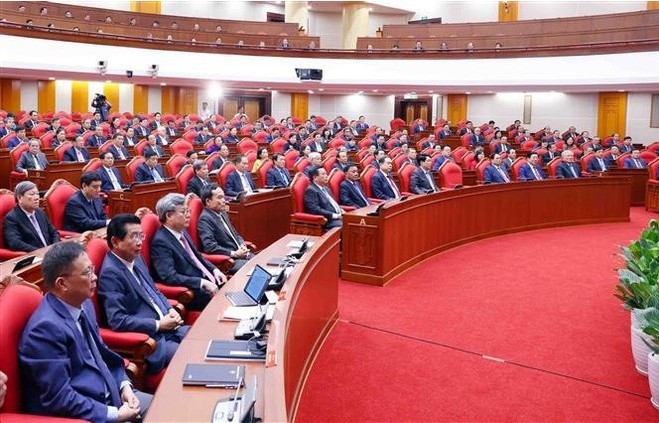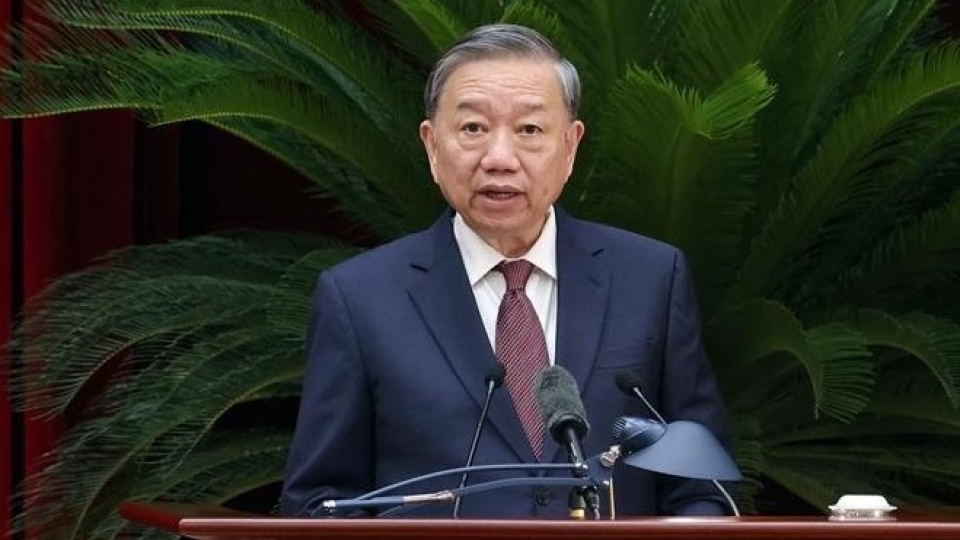13th Party Central Committee wraps up 12th plenum
The two-day 12th plenary session of the 13th Party Central Committee concluded on July 19 afternoon, fulfilling the agenda set out at the start of the meeting.

Delegates held in-depth, comprehensive, and highly unified discussions on three strategic content groups with long-term implications crucial for preparing for the 14th National Party Congress and advancing the country's continued renewal and sustainable development in the new era. In his closing remarks, Party General Secretary To Lam stressed that the Party Central Committee had tasked the drafting team with revising the draft political report to ensure it reflects both continuity and innovation. The report must accurately portray Vietnam’s development trajectory, especially its remarkable achievements in politics, economy, socio-culture, national defence, security, and foreign affairs.
He affirmed that the country's current stature, capabilities, and international standing are the cumulative result of 95 years under the leadership of the Communist Party of Vietnam, 80 years of the Socialist Republic of Vietnam, 40 years of national renewal, and the sacrifices and contributions of generations of Party members and people. The revised report must clearly define the objectives of the upcoming 14th congress term and extend the strategic vision to 2045, 2050 and beyond. It should highlight new development drivers, including science and technology, innovation, digital transformation, high-quality human resources, and the effective use of global integration opportunities, the leader stressed.
Furthermore, it must reaffirm the pivotal role of Party building and rectification, and the fight against corruption, wastefulness, and negative practices. Efforts must be made to combat individualism, group interests, and moral and lifestyle degradation; enhance power control; and improve the Party’s leadership, ruling capacity, and political combativeness. The General Secretary also emphasised strengthening national governance and the operational effectiveness of the political system.
As institutional reform is identified as a breakthrough and key driver for rapid and sustainable development, the Party leader called for the creation of a coherent, transparent, and feasible legal system that fosters a favourable investment and business environment while safeguarding legitimate public interests. He also urged increased application of digital technology in governance and a transition from a management-focused to a service-oriented administration.
Looking ahead to the organisation of Party congresses at all levels, Lam instructed that preparatory work be conducted in a methodical, democratic, and procedural manner, particularly regarding the drafting of documents and personnel plans. He called for continued improvements to the two-tier local government model, enhancement of public sector capacity and service-mindedness, and effective national celebrations, notably the 80th anniversary of National Day (September 2, 1945 – 2025).
The Party leader concluded by acknowledging the complex and shifting regional and global landscape. He urged the entire Party, people, and armed forces to remain steadfast in their faith, fuelled by the aspiration for development and the determination to drive forward comprehensive reform towards building a peaceful, developed, powerful, prosperous, and happy Vietnam.




